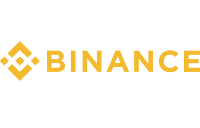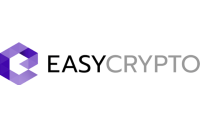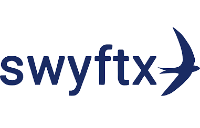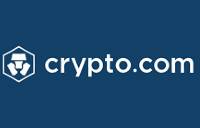How to buy Cardano in New Zealand
We explain how to invest in ADA if you’re in NZ, including how to pick the right exchange and how to store your crypto.

The breakdown
- Cardano (ADA) is part of the third generation of cryptocurrencies that aims to scale better than older coins.
- There are many exchanges and retailers that offer Cardano, but make sure you pick a reputable platform with competitive fees.
- As with most cryptocurrencies, Cardano is a volatile investment and potential NZ investors should be aware of the risk involved.
Author: Kevin McHugh, Head of Publishing at Banked.
What is Cardano?
![]()
Cardano (ADA) is one of the largest cryptocurrencies out there, even though it’s still fairly young.
Launched in 2017 by the co-founder of Ethereum, Charles Hoskinson, Cardano is described as part of the third generation of cryptocurrencies.
It has gained a lot of attention since its launch for how it tackles some of the biggest challenges that cryptocurrencies face, such as scalability and network transaction speed.
Cardano aims to be an ‘internet of blockchains’ — essentially an ecosystem that would allow users to exchange cryptocurrencies without the need for a third party.
Steps to buying Cardano
If you’re interested in Cardano, but don’t know how to invest, we take you through the necessary steps.
1. Set up your wallet
Like any cryptocurrency, you’ll need a digital wallet to store your Cardano. If you already have a wallet, you can move on to step 2.
While we talk about a wallet as ‘storing’ cryptocurrency, this is not actually correct. Your Cardano, along with everyone else’s, is stored on its blockchain (basically a database) and your wallet stores the details you need to access your Cardano.
> You can learn more about wallets and storing cryptocurrencies in our complete guide.
There are two kinds of wallets, each with its pros and cons:
- Online wallets: Also known as ‘hot’ wallets, online wallets are named as such because they are accessible to the internet. This could be in the form of a software wallet that you install on your computer or mobile phone. It could also include web wallets, which are those hosted on a crypto platform or exchange. As exchanges have been victims of cyberattacks in the past, hosted wallets are not suggested for storing a lot of Cardano for a long time.
Popular and widely used Bitcoin software wallets include Exodus, Jaxx and Electrum. - Offline wallets: Offline wallets are actual physical objects and are not accessible to the internet. This makes them more secure as a result, but less convenient and more expensive than online wallets (which are usually free). Hardware wallets such as the Ledger Nano S or the Trezor One are some of the most popular and secure examples of offline wallets.
The creators of Cardano also created a software wallet for the coin, called the Daedalus wallet. The Daedalus wallet will interest those who want to support the Cardano project, but it won’t appeal to most investors for a couple of reasons.
Firstly, the wallet is a ‘full-node’ wallet, which means it downloads the full ADA blockchain. This means it will take up several GBs of storage on your computer and it will take hours to update when required.
Secondly, it can only store Cardano. This compares to other software wallets like Exodus and the Coinbase wallets which can store many different cryptocurrencies.
2. Select an exchange that sells Cardano
As one of the larger cryptocurrencies out there, you will find no shortage of exchanges and crypto retailers that will give you access to ADA.
Compare exchanges that offer Cardano (ADA)
| Exchange/retailer | Available crypto | Fiat currencies | Deposit options | Key fees | Promotions | Learn more |
|---|---|---|---|---|---|---|
 Binance
Binance
|
350+ | 18 (including NZD) | Credit card |
- Trading fee: Maker: 0.02-0.1%
Taker: 0.04-0.1% - Deposit fee: 3.5%-5% (minimum $10) |
None currently | Binance review |
 Easy Crypto
Easy Crypto
|
155 | NZD | Bank transfer, credit card, POLi | - 0.89% trading fee and 0.4% forex fee | None currently | |
 Swyftx
Swyftx
|
312+ | 2 (including NZD) | Bank transfer, credit card, POLi |
- Trading fee: 0.6% (high-volume trading discount) - Deposit fee: $0 |
None currently | |
 Independent Reserve
Independent Reserve
|
27 | 4 (including NZD) | Credit card |
- Trading fee: Up to to 0.5% - Deposit fee: $15 (no fee for deposits over $5,000) |
None currently | |
 Crypto.com
Crypto.com
|
250+ | 20+ (including NZD) | Credit card |
- Trading fee: Maker: 0.04-0.4%
Taker: 0.1-0.2% - Deposit fee: $0 |
None currently |
3. Create your exchange account
Setting up an account to buy on an exchange is fairly simple, but you will have to go through an identity verification process.
To protect against the use of accounts for criminal activities, exchanges have Know Your Customer (KYC) programmes in place. This is a mandatory step that helps companies identify and verify their customers and minimises the chances of accounts being used for money laundering or financing terrorist activities.
The verification process is pretty simple and should take less than 10 minutes in total. The exact information you’ll need to provide can vary from exchange to exchange, but requirements often include:
- your mobile phone number
- a letter with your address on it, such as a utility bill
- photo ID, such as your driver’s licence or passport
- a selfie (to verify a match with your photo ID).
Once your identity has been verified, you’re ready to purchase your Cardano.
4. Buy your Cardano
Cardano will be simple to find on the exchange. By default, their cryptocurrency tables are ordered by market capitalisation, which means Cardano will be near the top.
Remember that the ticker symbol for Cardano is ADA. This can be helpful when confirming you’re buying the right coin.
Deposit options can differ from exchange to exchange, but bank transfer, POLi and credit card deposits are fairly common. Bear in mind that there will likely be a fee involved if you choose/have to deposit by card.
5. Transfer your Cardano to your wallet
Going full circle back to step 1, it’s time to transfer your Cardano to your wallet.
As we covered earlier, storing your Cardano in a wallet on the exchange from which you made your purchase might be an option for you. If you made a fairly small investment this might be fine for your needs, but if you made a bigger investment, transferring it to a more secure wallet is recommended.
You will be asked for your wallet address when completing your transfer. You should be able to find this easily in your chosen wallet. Once you have entered this into the exchange and made your transfer, your Cardano should be in your designated wallet in just a few minutes.
Why is Cardano popular with some investors?
While it’s one of the newer cryptocurrencies, Cardano has a lot of fans for these reasons:
- More advanced technology: Without getting too technical, Cardano has advantages over older cryptocurrencies such as Bitcoin and Ethereum when it comes to scalability and transaction speed — important factors in the growth of a cryptocurrency.
- It’s finite: Like Bitcoin, there is a maximum possible supply of Cardano ADA — 45 billion. As things tend to be more valuable the scarcer they are, some investors are keen to buy into that 45 billion.
- Climbing value: Cardano has exploded in value recently, and over the last 2 years in particular. Some argue this is part of a wider crypto bubble destined to pop, but others expect positive growth to continue and have been keen to buy in.
- Exposure to digital currencies: Some investors see cryptocurrencies as another way to diversify their investment portfolio, among other asset types.
What should investors be wary about investing in Cardano?
We look at some of the reasons that may make you think twice about putting your money into Cardano:
- It’s new: While many think Cardano has a lot of promise, a lot of it is potential that may never be realised. Essentially, Cardano is a largely unproven technology in a largely unproven area.
- Volatility: Although this is no different to most cryptocurrencies, the value of Cardano is hugely volatile and is susceptible to plummeting as much as it is soaring.
- Storage challenges: Storing cryptocurrencies like Cardano takes more consideration than simply opening a bank account. Many have lost access to their crypto simply because they can no longer get to their private key.
How to pick the best Cardano exchange
With so many exchanges out there, it might find it tricky to choose the right one for your Cardano purchase. We break down the main things you should be comparing when choosing the best exchange.
Fees
Fees are unavoidable when buying cryptocurrency, but that doesn’t mean you can’t minimise how much you pay in fees.
Typical exchange fees for buying Cardano include:
- Deposit fee: A fee on the NZ dollars you use to fund your purchase. It’s worth noting that depositing another cryptocurrency is usually free of charge.
- Withdrawal fee: A fee for withdrawing funds from your account can sometimes apply, this includes the withdrawal to your wallet.
- Transaction fee: A fee on buying or selling your Cardano. This can often be on a ‘maker-taker’ structure in which someone who is creating liquidity within the exchange (a maker) is charged a slightly different fee than someone who is decreasing liquidity (a taker).
Not only do fees vary with each exchange, but how those fees are charged can also vary. For example, some platforms include all fees in the total cost you pay to purchase your crypto.
This can make things more convenient, but it’s important to know how much extra you are being charged for your purchase
Cardano network transaction fees
Any time you buy or sell Cardano, there is a network transaction fee to pay that is separate from the fees charged by an exchange. This applies to all cryptocurrencies, not just Cardano.
This fee is used to update and maintain the Cardano blockchain and fluctuates with market demand.
Thankfully, this fee is fairly low (under $1) and is much lower than transaction fees for some other cryptocurrencies, such as Ethereum.
The exchange’s history and reputation
There are literally hundreds of cryptocurrency exchanges. Unfortunately, the security, reliability and service they provide can vary a lot between them.
Ensure any exchange you are considering is legitimate by researching it on websites like Banked and by finding out if and how people are talking about it in forums and social media.
If it is a New Zealand-based company, check if they are registered on the Financial Services Providers Register, and what their registry entry states.
The range of cryptocurrencies available
You may only be looking at investing in Cardano right now, but you might decide you want to broaden your cryptocurrency portfolio in the future.
With this in mind, you should consider how many other cryptocurrencies the exchange offers. If you’re happy with how your Cardano purchase went, including how much you paid in fees, being able to return to an exchange you already have a verified account for will make your next purchase simpler.

